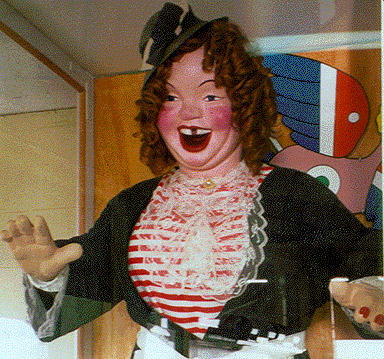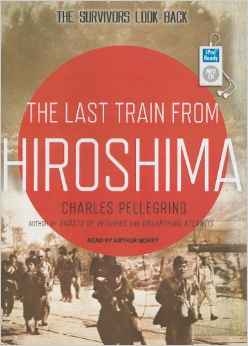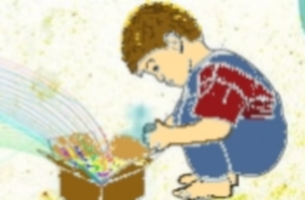Once again The Bee shoots itself in the foot...
the other foot!
The first time the Sac Bee attempted foot surgery by gunshot, was in its grand-charade about its online comment pages. I'd participated in those as a commenter for years. Then one day, the Bee began making noises about trolls, and "disturbing posters" and "net courtesy" such. I didn't see much of that on the varied articles where I'd made comments—a little name-calling, once in awhile. Nothing serious.—but, ok, I took them for their word. I figured they'd yank a few yahoo's posting privleges and that would be that.
But it continued. Then, sifted into that motif, the Bee editors started talking about how they were planning to "update" the comment system and make it a whole lot better. Well, that seemed nice. Even I could think of a few features that might improve things. So, ok, that went on for awhile. Then one day I dialed up the comment section to post something and, lo and behold, I couldn't sign on. I tried in numerous ways, attempted to access my login account, and a bunch of other things. No dice.
Finally, after yet-another-attempt to login, I got a message saying that the paper was using a "selected group" of readers to test out its new system. I think there was some invitation with it about "If you wish to participate...fill out..." some form. So I did that. And nothing happened. And I did it again, and again, over the next few weeks. Still nothing.
Now that part I didn't get.They couldn't be deliberately 'de-selecting' me, could they? I had been a good boy on the Bee's comment pages. Oh, make no mistake, I could be tough in an argument, and often was. But I never personalized, called anyone bad names, made ad hominem attacks, or even used bad words (well, maybe "hell" or "damn" a couple of times.) But nothing that could even remotely connected with crossing some netequette line. I was always on-topic, always thoughtful in my remarks, and sometimes even embarrassingly complementary to other posters. So no reason to '86 me from the joint.
Failing their online "selectivity" test, I then sent them a couple of emails explaining the problem, making sure to cite my impeccable record of participation over the years, and the fact that I was also a Bee subscriber. All to know avail. I didn't even get back an automated response to my requests to be signed up. And then it dawned on me...
This wasn't about a new "awesome, super comment system." Nor was it about getting rid of noxious trolls and such. It was really about weeding out readers and writers whose opinions the Bee didn't happen to like. I could think of no other good reason for the exclusions, though I could never verify this suspicion owing to the fact that I couldn't get on the system to see who the "selected group" really was.
After that, it didn't take much thought to realize, more than disconcerting its readers the Bee had really shot itself in its own foot. What happens when you shut down direct, bidirectional communications with the people who buy your product? In the newspaper game, that feedback and comment is critical. You cut it off, or cut out everyone but your own well-managed choir and, you really have no way of assessing whether you're on track, or taking sides and spilling ink that your readers don't and won't support. Indeed, you resemble little more than someone who cheerleads maybe 15% of the people, makes it sound like you're playing everybody's favorite song, and you don't even know the tune, let alone the lyrics. But oh, that's what the Bee did with the arena deal, isn't it? So it makes sense that the'd have so little regard for most of their readership. It's not how think they do business, perhpas. But it is, in the long run, how you lose business.
For awhile (maybe its still there), the Bee provided an ersatz substitute for direct comment, a Facebook page. Please, don't insult us with pretending that's a place we can reach-out and talk back. It's not, & and the Bee knows its not. Well, ok, that's a dead horse. No sense beating it.... They do that fine, all by themselves. Now, about that other foot...
So, I'm estranged from my former hunk-a-news. That's it. I don't have much to do with them, they have nothing to do with me. Until, I need to research a few local stories I read in the paper. So I'm online, on the Bee site and searching something or other. When I find what I'm looking for, I click it. The article comes up alright—for about five seconds. Then there's this dirty grey film over it and a message that tells me "articles over 30 days old have been archived" and are unavailable without paying some kind of fee (99-cents, I think, on a pay per view basis). Well, that's not even an "archive" anymore, is it. Its a retail showroom selling bits of bytes.
I suspect there's more than a few of you reading this who'd like to chime in, "Well, it is a private business, and they really have a right to do what they want, conduct it as they think best. And, besides, somebody has to pay for maintaining those archives.
Let's take the last part of that first, its the easy one. Yes, there is some cost (though small) for maintaining a digital archive. However, consider that it serves them first; their reporters and editors and research staff and others who depend on those archives. So it is something they need to do in any case. Maintaing the servers for public access and such, marginal costs. So somebody "paying for those archives" is really a function of doing business, and shouldn't cost much more for maintaing public access portals for other readers and researchers. It's really just more of the corporate practice of putting a name on something, under the general rubric that, if you can put a name on it, you can put a $-sign on it.
Suffice to say that today's coporate climate has found ways to make you pay several times over what a product costs to make in the first place, plus a tidy profit—before you ever get the widget out the door.
The other part of this self-inflicted wound story has to do with what those archives really represent, and what media and news archives in general are about.
As digitized scraps of paper, yes, they they are just an item which someone collected and sells back to you. History's rag pickers. But newspaper scraps are a wholly different order of "rags". They're the stuff of our own history, the glue that helps to hold our culture together. Those little hide-'em-in-a-vault recollections are really a large chunk of our cultural memory.
In that, the role of a newspaper, lies not only in preserving that stuff, but in making it available to all (if that can be practically done). To put up a troll-gate and monetize those bits of our culture that have been given you by all of us, to them for free, is tantamount to a self-serving act of assault on everyone—us readers, non-readers, your kids, your parents, the rich and the poor.
Not that the Bee is the only one embarking on this path. The other day I got a note in my inbox inviting me to pay $29/yr to the Washington Post for access to its archives. It's become the next wave of inventing revenue streams out of nothing, out of thin air. No, worse, its inventing those streams out of stuff we all provided to them&mdsash;our stories, our events, our joys and our sorrows— absolutely free of charge. Indeed, it's one of the oldest jouralistic canon that a newspaper doesn't pay its sources or its news makers. It would be unethical to do that. So, we can only ask back, how ethical is it for the papers to charge us for things from us took from us, without paying us a nickle for them?
About the "shooting themselves in the foot, self-inflicted wounds" part? Consider, The Z has already made it a policy (a few places in this edition excepted, so readers can see what their toll-gate feels like) not to link to Bee articles. That is despite the fact that we will be discussing many Bee stories, as well as those of other publications and media in the future. I have also stopped posting links to Bee stories on social media, even when they are directly relevant, for the same reason. I will not have my friends and readers staring at a corporate cash-register everytime they wan't to look-see at their own culture-in-the-making for themselves.
Nor do I think I'm alone in this resolve. So what happens when more and more of us opt out of feeding the hand that bites us? Cut by paper-cut, the Bee and those who follow their lead will no longer be on our minds or in our view. We will leave them to slowly bleed out from their own self-inflicted wounds, wondering why all but a very small choir have gone elsewhere to retrieve the memories and histories that belonged to them in the first place.
The Bee won't get it. They will say something like, "Get a grip, red. Get real!" And I can only say back to them, "Get a grip, corporation. Start speaking another reality than the tiresome one you've been saying for so long. It's obsolete. Get real, and get a grip on that."
 Laughing Lady
Laughing Lady





